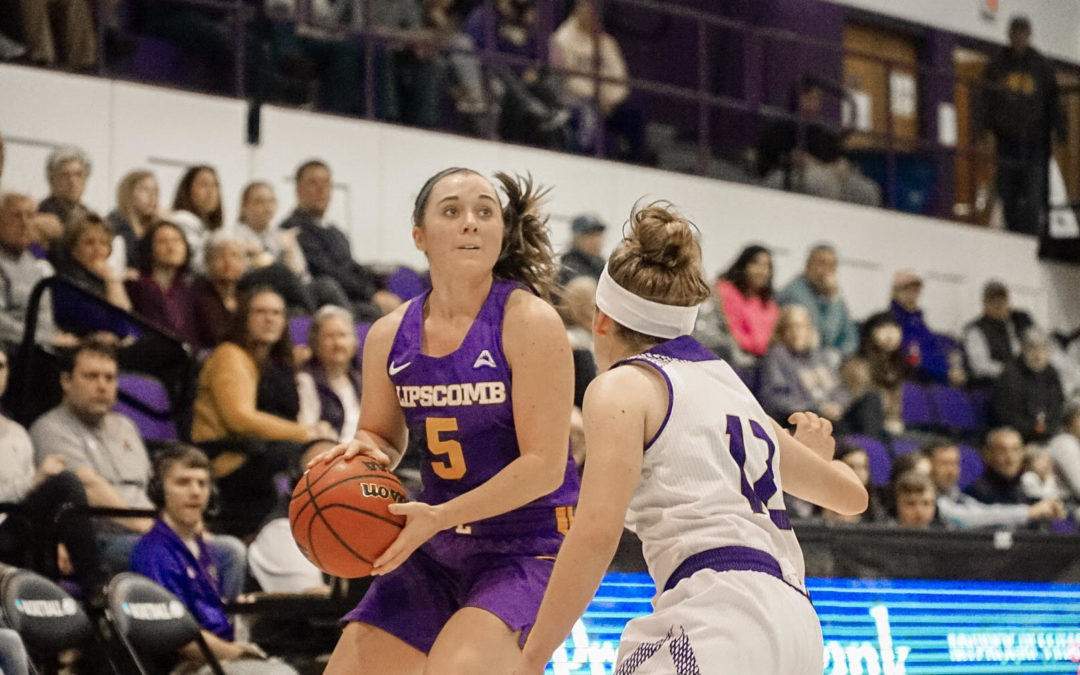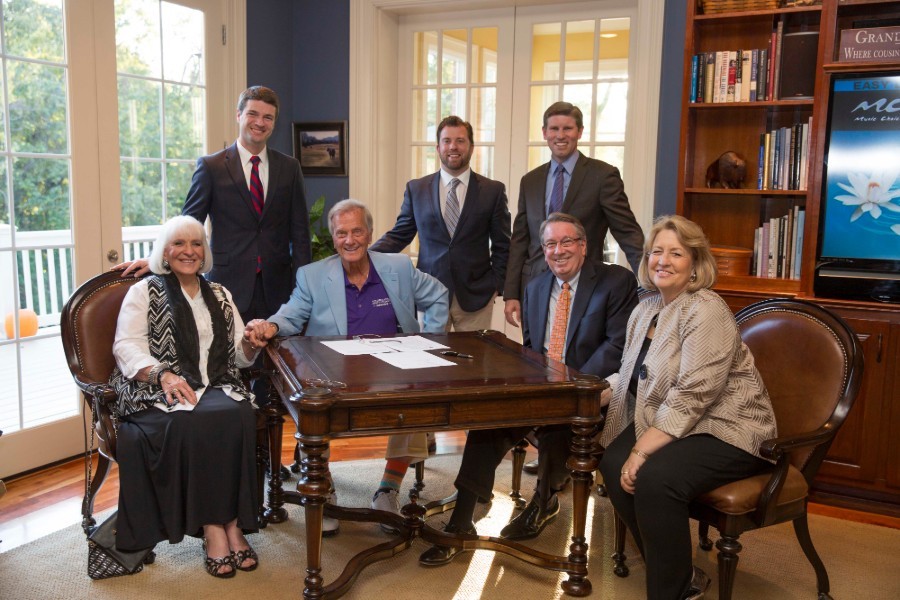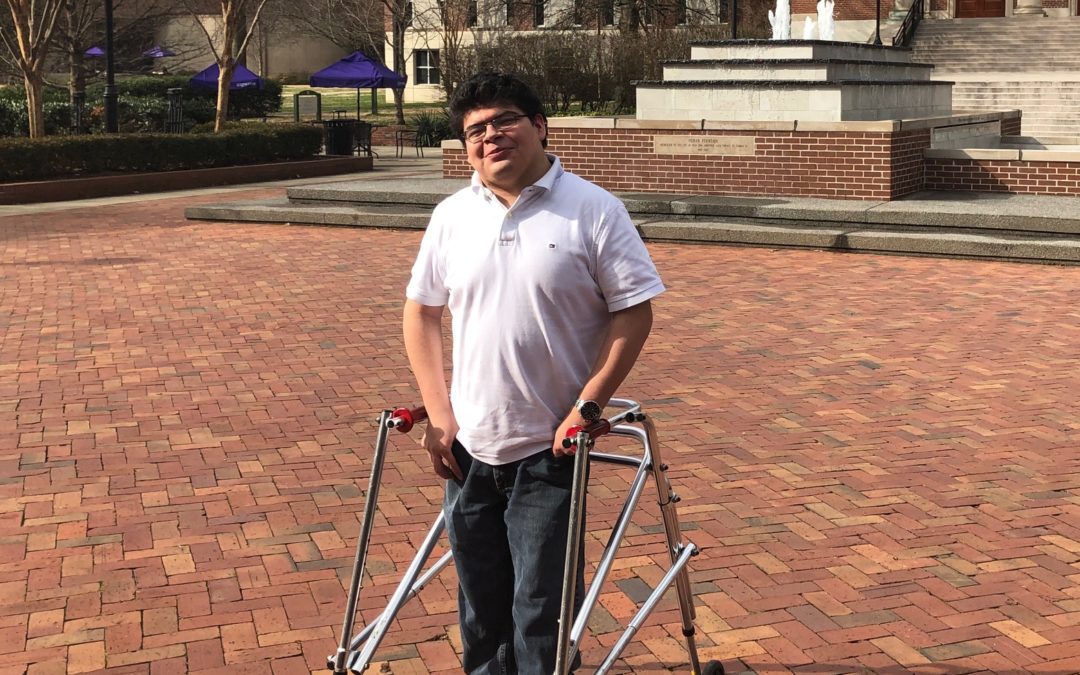
by Erika Plunkett | Mar 3, 2019 | News Slider, Sports
After losing to NJIT on Wednesday and clinching the No. 9 seed in the ASUN, the Lady Bisons fell to the North Alabama Lions on their senior night Saturday afternoon in Florence 71-50. Lipscomb did not have much to play for Saturday, as clinching the ninth seed eliminated the Lady Bisons from the ASUN tournament next week. So, as has been this season’s story for the Bisons (3-24, 1,14 ASUN), they could not maintain their first half intensity and let a three-point game at halftime become an almost 30 point game once in the fourth quarter. On the other hand, the Lions (19-6, 10-5 ASUN) had everything to play for as this game assured them one of the top four seeds in the ASUN and the opportunity to host at least one game in the tournament in their first season as a Division 1 school. The game got off to a slow start as Lipscomb and UNA posted strong defensive performances in the first quarter but were unable to convert on the other end of the court. In this period, the two teams only posted a combined 22 points. Last time these two schools met, it was junior guard Emma Wallen who provided the early spark for the Lions. But today it was a different sister out of the triplet trio — fellow junior guard Ivy Wallen — who was the early conductor for UNA’s offense and led the Lions in scoring in the first half. For the Bisons, the scoring was evenly spread across the roster with all 10 players who entered the game posting at least...

by Martin Baker | Feb 22, 2019 | News Slider
On Thursday, the Lipscomb community hosted a memorial service in celebration of the life of Shirley Boone, the wife of Pat Boone and daughter of Red Foley, and the positive spiritual impact she had on others. The memorial, held in Collins Alumni Auditorium, was beautiful and respectful, with just the right amount of happy to outweigh the sad. Julia Gooch, a childhood friend, recounted the story of how she introduced Mr. and Mrs. Boone when they were only young teenagers. “Their eyes just sparked,” Gooch said. “They were so in love.” The service was filled with testimony after testimony of the impact Shirley Boone had made on the world and of what an amazing woman she was. “She excelled at everything she tried, and even things she didn’t try for,” her nephew Grant Boone said. “Jesus was revealed in Shirley,” her friend Landon Saunders said. Many recounted how, even in her later years and towards the end, Mrs. Boone never stopped trying to help and minister to others. “There was no retirement for Shirley Boone,” Rhonda Lowry, the wife of Lipscomb’s president, said. “She did ministry from a chair.” There were several musical portions of the service, with songs sang by Michel W. Smith and Nicole Mullen, among others, as well as a few video and photo montages of moments from her life. However, the most touching moment came when her four daughters, Cherry, Lindy, Debby and Laury sang a song together for their mother. Singing was just a part of being Boone, and the daughters were no exception. “What a gift she gave us,” Debby said. “Harmonizing taught...

by Ashley Bingham | Feb 21, 2019 | Arts and Entertainment, News Slider
Hidden Figures is a story about breaking the mould — about progress and about bravery. It’s a story that has been hidden for years but now has been heard by millions. This past Tuesday, the Raymond B. Jones College of Engineering partnered with the English Department’s annual Landiss Lecture Series to bring in author Margot Lee Shetterly to talk about her book, Hidden Figures, in honor of Black History Month. Hidden Figures has been named the 2018-19 Nashville Reads book by the Nashville mayor’s office and the Nashville Public Library Foundation, as well as the Common Read by Lipscomb University’s LIGHT program. Hidden Figures is a story about three women, Dorothy Vaughan, Mary Jackson and Katherine Johnson (formerly known as Katherine Goble), and the work they contributed during the Space Race to launch astronaut John Glenn into space. Shetterly’s father spent his career at NASA Langley in Hampton, Virginia, where Shetterly grew up and where the story takes place. Her father worked with many of the women that she wrote about in Hidden Figures, including Johnson and Jackson. In her lecture, she discussed the how the public, along with the publishers and producers who helped share her story, have received Hidden Figures, and how it became more than anyone could have envisioned. The shocking response started fairly early in the works, as a film producer contacted her about turning the book, which was simply a proposal at this stage, into a movie. “The response to this story has been beyond anything I could have imagined, that the publishers imagined, that the movie people imagined, that NASA imagined, and most certainly, that the women at the core of this...

by Quinn Gorte | Feb 19, 2019 | News Slider
Out of the seven Lipscomb students who were nominated for the Fulbright Scholar Program, all seven have gone on to become semi-finalists. In the past, the highest number of Lipscomb students to achieve Fulbright semi-finalist status in one year was one. This year, all seven nominated Lipscomb students or recent graduates were accepted as semi-finalists into Fulbright, which is a prestigious international exchange program sponsored by the U.S. Department of State’s Bureau of Educational and Cultural Affairs. Dr. Paul Prill, Lipscomb’s Fulbright program adviser and director of the Honors College, said this recognition was unusual for “a school like Lipscomb,” since most Fulbright Program finalists come from larger universities, like the University of Michigan and Cornell University. “This is unprecedented for Lipscomb,” Prill said. “It’s really good for Lipscomb to be able to point to the academic success the students are having.” One of the semi-finalists, Lipscomb senior Maribeth Beyer, shared her thoughts on what this means for her and Lipscomb. “We’re not Yale, Harvard [or] Vanderbilt, but we are moving up,” said Beyer, adding, “and any opportunity I have to take Lipscomb further than Nashville is an incredible opportunity for me.” According to Dr. Prill, Fulbright applicants have about a five percent chance of becoming a semi-finalist, and semi-finalists have approximately a 30 to 50 percent chance of becoming a finalist. Once accepted into the program, Fulbright scholars will have the opportunity to live in a country of their choosing, either as an English teaching assistant, a researcher or a student, for approximately one year, depending on the program and grant. Bigger countries, like Spain and Germany, often...

by Tyler Harvey | Feb 9, 2019 | News Slider, Student Spotlight
Imagine only having a 50 percent chance of survival and moving to an entirely new country within the first couple years of your life. These are just two things Lipscomb student Juan Oliva had to deal with when he was born. Oliva was born five months premature in Guatemala City, Guatemala. “The doctors told us it was 50/50 — the next day he can stay alive, or he can die,” Oliva’s dad, Juan Oliva Sr. said. When Oliva was born, his lungs were stuck together, and he weighed less than three pounds. “At that time, they were five kids born in the same situation; there was just one dose of medicine for that,” Oliva Sr. said. “He was the one at that time that had more possibilities to live, so they gave it to him.” Five months after Oliva’s birth, his parents noticed he was having problems sitting and turning. “He just used to stay still, looking straight. He couldn’t turn or do anything like that,” Oliva Sr. said. That’s when Oliva’s parents decided to take him to a doctor in Guatemala. The doctor told his parents that he has Cerebral Palsy, a disease that would require him to walk around with a walker everywhere he goes. The Olivas said they then decided that it would be best to move to America, where their son could have the best facilities to help with his disability. But Oliva said life in the United States wasn’t perfect for him. “Having a disability, you always had to deal with types of insults like getting called octopus or people saying the wheels on...






